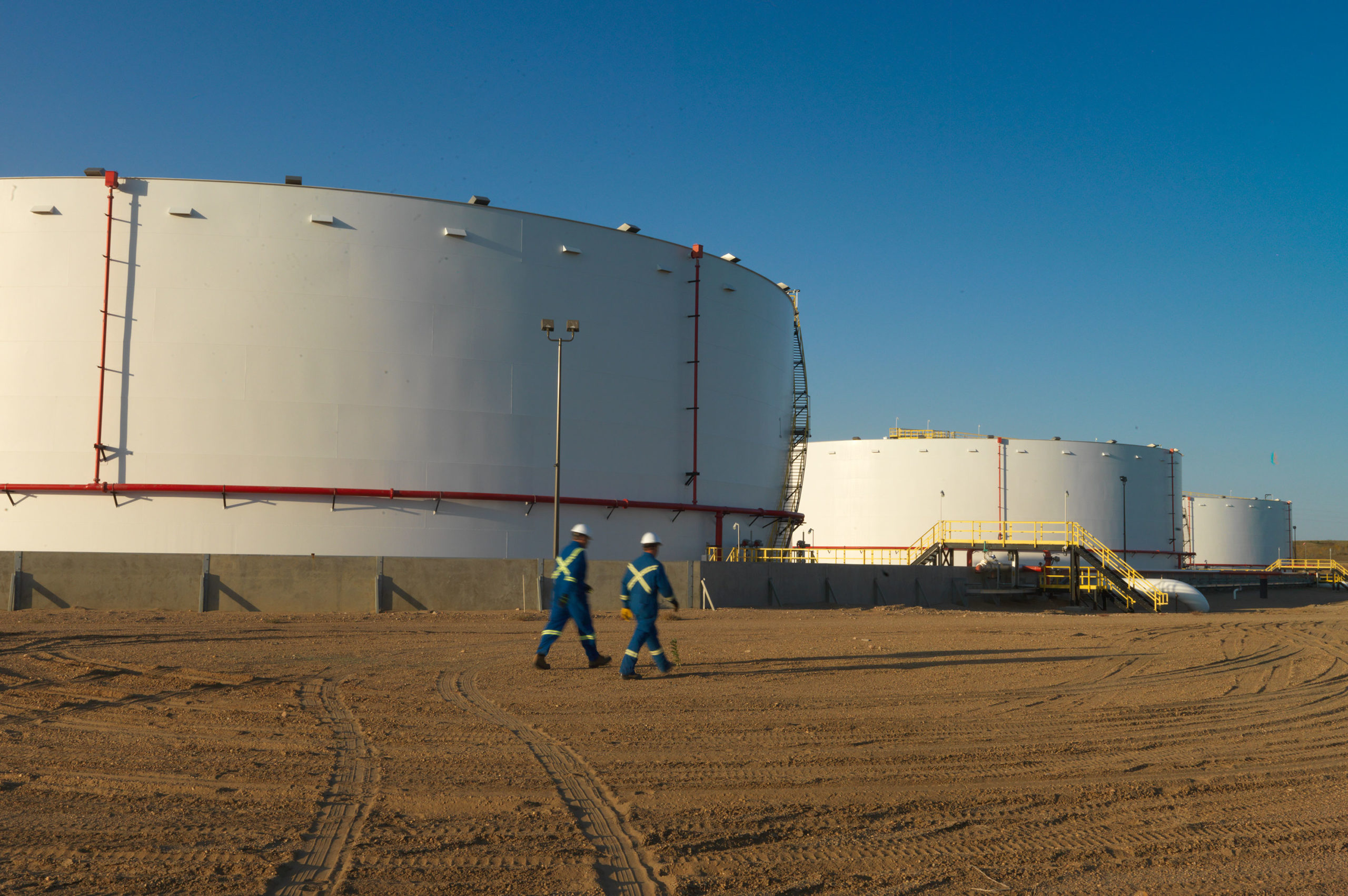Town okays water for KXL: tribes hold out

TC Energy Corp.’s Hardisty, Alberta oil tank storage facility in Canada is part of the Keystone Pipeline System that would expand into Lakota Territory if more permits are granted. Photo courtesy TC Energy Corp.
BUFFALO – As state hearings on the tribally contested water permits sought for Keystone XL Pipeline construction and man-camps in Lakota Territory continued into Round 3 on Jan. 13-14, the city fathers of this little Northern Great Plains town closed a deal with the line’s Canadian proponent to supply its private needs from a public well.
They approved it even before South Dakota Chief Engineer Jeanne Goodman had recommended the state Water Management Board accept Buffalo Water Superintendent Ryan D. Smith’s request for a new Well # 8 to boost the city’s capacity by 82-acre feet per year.
The local newspaper of record shows that the Board of Trustees of the Town of Buffalo (population 213) unanimously approved the agreement with TC Energy Corp. (formerly TransCanada Corp.) on Dec. 17, 2019.
Goodman made the recommendation on Jan. 2, 2020, as documented by the South Dakota Department of Environment and Natural Resources.
The paper, Nation’s Center News, also reported unanimous board approval during the same regular meeting date for a right-of-way agreement favoring the hazardous materials pipeline that would deliver tar-sands crude from Canada’s oilfields to refineries and export facilities on the Texas Gulf Coast.
Numerous other permits opposed by tribal governments and organizations would be needed for the line to be built across the 1868 Ft. Laramie Treaty territory states of Montana, South Dakota and Nebraska, so it could link existing infrastructure to serve its purpose.
The Cheyenne River Sioux Tribe, Yankton Sioux Tribe, Dakota Rural Action and individual intervenors are contesting state water permit applications for four TC Energy Corp. contractors’ man-camps, including one on the outskirts of Buffalo.
The outpouring of argument over the state permitting has required the Water Management Board to set three rounds of hearing dates, even though it limited public comment to two minutes per person at the previous round in December.
Dakota Rural Action railed against the type of arrangements between Buffalo and TC Energy Corp.
“Contested case hearings — including three permits to appropriate water from the Cheyenne, Bad, and White rivers, plus two amended permits for well water use — are an important process for revealing issues around the Keystone XL Pipeline and TransCanada’s lengthy record of leaks, spills, accidents, and other mishaps,” the statewide grassroots membership group said.
“This ongoing process has allowed South Dakotans to learn more about how their water is being used, as well as the risks of tar-sands pipeline projects. But, behind the scenes, TransCanada is taking advantage of rural municipalities and water systems to hide their thirst for hundreds of millions of gallons more of our public water,” Dakota Rural Action continued in a written statement it issued Jan 8.
“Without any accounting of these additional appropriations, how will South Dakotans know the true cost of this project?” it asked.
(Contact Talli Nauman at talli.nauman@gmail.com)
